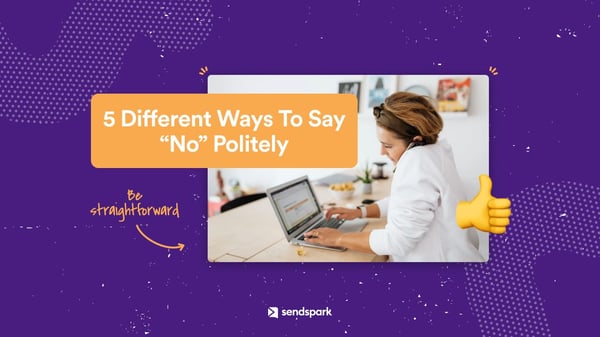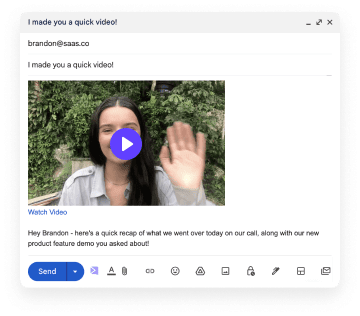Do you find it hard to refuse overtime requests at your workplace? Does it feel difficult to stand your ground when your colleagues disagree with your opinion? Do you make excuses for things you don’t want to do?
If your answer is “yes” to all these questions, we can say that you have trouble saying “no” at work.
Warren Buffet was right when he said all successful people say no to things.
Denying requests for something you don’t want to do opens up your time for things you want to do. These are the things that not only matter to you but also help your career.
Why Is It Difficult To Say No?
There is a wealth of literature on learning to decline daily requests and saying “no.” But how we are raised makes us feel like we must lend a hand to those in need and that we should aid one another whenever we can. Also, many of us are conditioned to believe that the only way to advance in our careers is to “do what it takes” and take on more work.
It may be challenging to give a direct rejection for fear of damaging one’s reputation. Nobody wants to be known as the tough boss, the unreliable coworker, or the wallflower. But, there is no denying that it is important. So let’s look at tips on saying “no” without damaging your reputation.
How to Say "No" Politely
1. Be decisive
Saying no isn’t only about denying requests. It is also about relaying your decisions and not keeping them open to others’ “opinions” or “thoughts” unless required. For example, say you’ve been tasked with outsourcing for your department, and you have decided to consult Link Building HQ for SEO and linkbuilding services. You might hear a lot of “but” and “if” about what others think is best but convey that you have made a decision that is not open to suggestions.
Creating a workplace that is equal for everyone is essential, and that is only possible when everyone’s boundaries are respected. For example, your boss can request you to carry out a particular task that is not part of your job role, but you can decline if you feel uncomfortable. You can deny a request for many reasons, such as you might be under/overqualified for the job, or they might be asking you an unethical favor.
After saying “no” to a request, many people who do not respect your decision will try to convince you otherwise. However, respect yourself and your stance. When you decide on something, remain firm on it.
2. Be straightforward
Don’t hedge your answer with phrases like “maybe” or “I don’t think so.” Make sure the person asking you realizes this is a final and irrevocable no. If you say “perhaps later” or “another time,”you should follow through. In other words, if you give an equivocal response, the person may feel compelled to ask you the same question again.
But remember, there is a fine line between being straightforward and rude. So, make sure to politely listen to your coworker when they ask for a favor. Do not cut them off while they are speaking. Once they have requested, simply let them know you are not willing or available.
3. Be nice
Many people associate saying “no” with being rude. It is why people avoid responding with a noout of concern for being perceived as harsh or unfriendly. If your answers are always so brief and abrupt that people see them as rude, you may develop that reputation. But if you kill them with kindness, saying no may be dignified and even liberating.
Even when you have to say no to someone, they still want to feel heard and valued. You can allow the other person that feeling; make them feel heard and appreciated just with how you say no.
Start positively: (“That sounds like a great offer”), deliver the bad message (But I already made commitments.
4. Bring an alternative
Another way to kindly refuse someone is by bringing up an alternative. The benefit of an alternative is that you prioritized yourself but were kind enough to aid them indirectly. For example, one research concluded that the human brain gives a negative signal when it hears the word “no.”
So, adding an alternative to your refusal can make it less painful for them. So, for example, if a coworker asks for your help, but you are busy, you can say, “I can’t help at the moment, but I can help you with it tomorrow.”
You can also completely turn them down if unavailable but refer another colleague for help. For example, “I won’t be able to help you with this, but Mark can.” It shows that you respect your time and care about their work.
5. Don’t damage the relationship
Learning when to say no is important so you can say yes when the time is right. The ability to confidently say “yes” when the right opportunity presents itself requires, for instance, learning to say “no” to projects that don’t align with your professional goals.
When declining an offer, you should be careful not to damage future relationships. Maintaining positive relationships with your contacts is essential to climb the corporate ladder. Just by saying something like, “I don’t have the capacity at the time” or “I’m unavailable right now,” you can let someone know that you’re interested in pursuing a similar opportunity in the future.
Using these phrases cautiously lets you offer the other person optimism that your no might convert into a yes.
Final Thoughts on Saying "No"
To decline an offer professionally and courteously is a skill you can pick up with these tips. Assisting people occasionally is excellent, and it’s comforting to know that you can count on others in return. But unfortunately, it’s easy to agree to help people just because of the fear of sounding rude. And agreeing to do all these things might result in burnout and resentment. Consider whether or not helping the person who has asked for your assistance is something you want to do and can do before deciding whether or not to decline the request politely.
Additional Resources for Communicating at Work
Explore these articles to communicate better with colleagues and customers to build your career:



